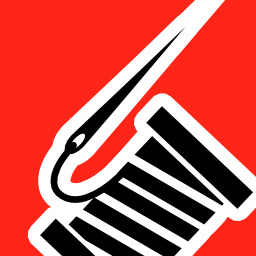Serilog 2.0 Progress Update
TL;DR: There are now 2.0.0-rc2-final-x Serilog packages on NuGet. These are primarily for the adventurers building apps for .NET Core and ASP.NET Core (previously ASP.NET 5). If you’re not pushing forwards into the next version of .NET just yet, then Serilog 1.5.x is the version you should use.
Blazing a trail, or curious to hear what we’ve been up to? Great! Read on…
Why Serilog v2?

.NET is changing – that’s possibly an understatement. The days of the big, bulky, slow-moving, preinstalled framework are drawing to a close, and in its place we’ll soon be building on a pay-for-play framework that is light enough to ship alongside your app. Targeting .NET Core means your app only has to carry with it the packages that it needs.
This spells trouble for the “batteries-included” packaging approach we took in Serilog 1.0. Including a bunch of sinks, enrichers and extensions in the core Serilog package means that the transitive closure of dependencies is large. Most apps only use one or two logging sinks, so shipping every package required by every core sink is a waste. In a year’s time, no one will want to use a logging framework that pulls in multiple megabytes of unnecessary junk.
So, fundamentally, v2 of Seriog is about packaging. Instead of the Serilog package carrying the rolling file and console sinks for example, those will now live in Serilog.Sinks.RollingFile and Serilog.Sinks.Console, respectively. Without going too crazy, other bits and pieces like `` support will also be moving out.
Since a good package factoring will mean a few breaking changes, we’ll capitalize on the opportunity to make a number of smaller improvements that couldn’t otherwise be included in 1.5.
Who is working on this?
There are dozens of active contributors to the various Serilog sub-projects. I’d love to list them here This Week in Rust-style, but I’m not organized enough to get that right. Everything that’s great about Serilog at this point is the product of a dedicated bunch of contributors, and all of that will be brought across into Serilog v2. We’ve also landed many PRs in the v2 branch that will ship along with the v2 release - thanks everyone who has sent one or more of these!
On v2 specifically though, I have to mention the work done by @khellang on the platform mechanics. .NET Core has been a moving target, and over the course of almost a year we’ve had to adjust to the twists and turns that the new platform has taken while keeping an eye on the eventual end goal. Kristian has helped the project navigate all of this and I don’t think we’d even have a working build right now if not for his guidance and hard work.
The flip-side – maintaining a usable API and intelligible packaging story, has been in large part the work of @MatthewErbs, who’s landed some of the broadest and most detailed PRs we’ve yet attempted in the last few months. Likewise, v2 would be nowhere without Matthew’s efforts – and bulletproof patience! :-)
What’s done, what’s remaining?
At the time of writing, the v2 Serilog package as well as the previously-built-in sinks work on .NET Core identically to the full .NET Framework. On the packaging side, there’s still some work to go, but things are coming together quickly.
Beyond that set of basic sinks, along with a few extras like the Seq sink and my favourite Literate Console, practically nothing works. If you are working on a .NET Core app and the sinks you prefer aren’t available, helping to update them is a great way to support the project.
We’ve also shipped Serilog.Extensions.Logging, a provider for the logging abstractions used throughout ASP.NET Core. You can read more about it and see some example output in this article on the Seq blog.
Remaining is a large amount of cleanup and polish. One task in the midst of this is removal of .NET 4.0 support from the codebase. 4.0 is a respectable platform, but it is a static one. New features and improvements going into Serilog are mostly in support of new platform features and don’t carry as much value for .NET 4 apps. Couple this with the observation that .NET apps aren’t likely to adopt new technology (including Serilog) in significant numbers, and it is hard to justify carrying forward the #if spaghetti to the new version.
This doesn’t mean Serilog is abandoning .NET 4 – only that Serilog 1.5 will remain the recommended version for this platform. Platform-specific dependency support in NuGet also means that projects wishing to actively support .NET 4 with Serilog can still do so by selecting different required Serilog versions per target framework version in project.json.
When will Serilog 2.0 ship?
The core Serilog package will ship in line with .NET Core/ASP.NET Core. There’s no solid date on this yet, but the ASP.NET Roadmap is the location to watch.
I would guess this post raises as many questions as it answers – please ask away! If you’d like to help us cross the last mile (or two) then the best way to get involved is to grab an issue by leaving a comment, or raising a new issue for work you might want to complete such as porting one of the many remaining sinks.
